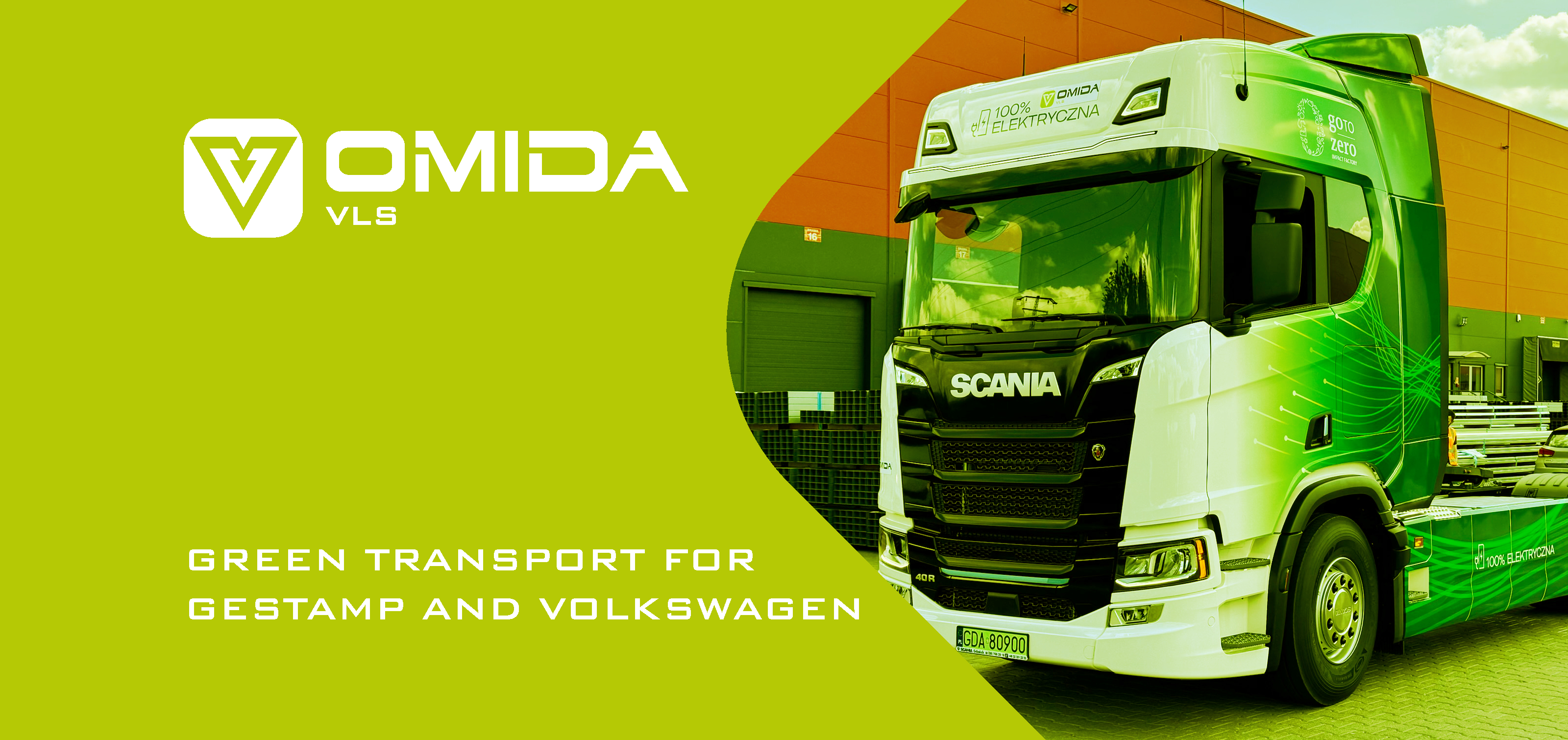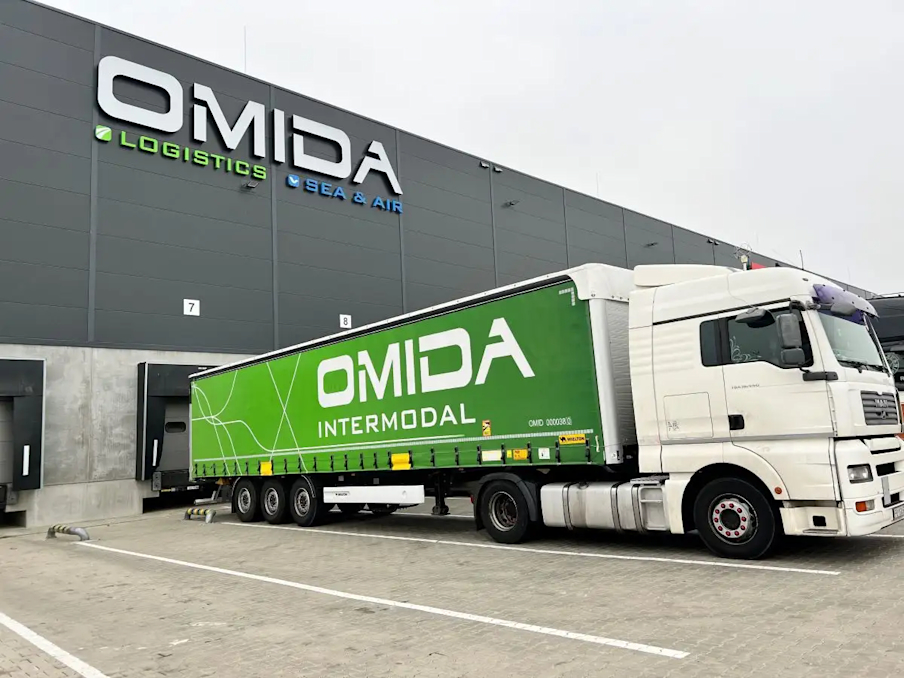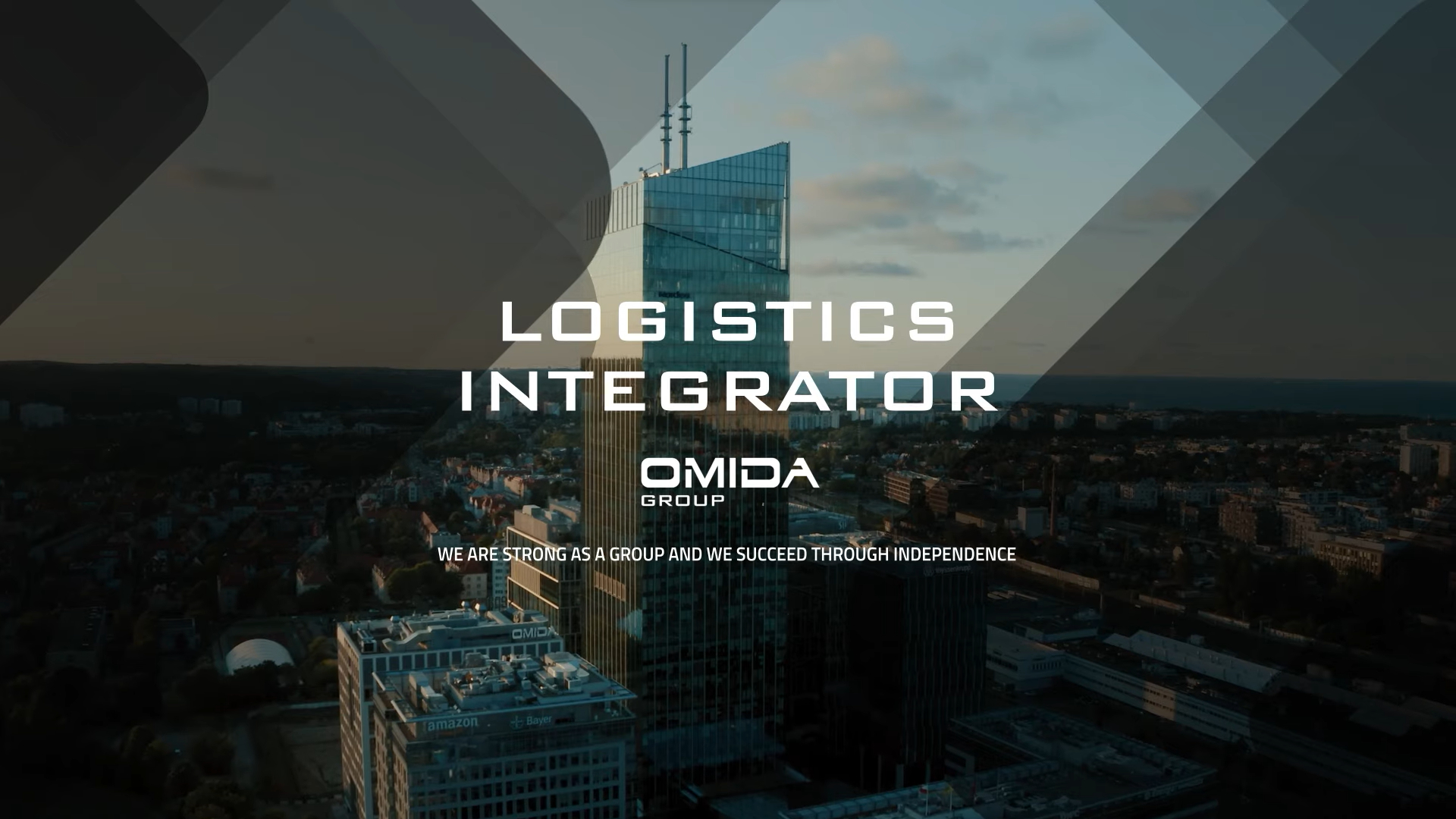Logistics is a complex system that relies on many aspects responsible for the proper functioning of the TFL industry, and at the same time constitutes the backbone of any modern economy. In the era of increasingly complex processes such as logistics management or supply chains, it has become clear that logistics in the 21st century is not only a challenge, but also the art of proper organization. Proper planning, process optimization, resource and warehouse management, as well as the ability to respond to unforeseen situations are just a few aspects that every Logistics Specialist must keep in mind.
In this blog, we intend to share with you our knowledge and experience of the latest trends and solutions in logistics from the point of view of a Logistics Specialist or someone who intends to become one. We will discuss the latest technologies such as blockchain or artificial intelligence in logistics and try to understand what challenges and opportunities lie ahead in the near future.
What is logistics?
Logistics is the practical activity of managing the flow of goods, services and information from their point of origin to the place where they will be consumed or consumed. It includes the management of all resources that are necessary for this process, such as materials, equipment, warehouses and human labor. Logistics is integral to almost every industry and organization, from manufacturing and trade to services and the public sector.
Logistics also includes the coordination of various stages of the supply chain, including international and domestic transport, storage, procurement and distribution. Logistics is influenced by a variety of factors, such as technology, legislation, business practices, as well as a country's economic and social conditions. Therefore, logistics is an interdisciplinary field that combines elements of management, economics, engineering and technology.
What does a logistics specialist do?
In the TFL industry, a logistics specialist is responsible for coordinating the flow of raw materials, semi-finished and finished goods, with the aim of minimizing the time goods spend in warehouses and optimizing the process of delivering them to their destination using, for example, road transport or intermodal transport. This person also manages operating costs, making sure they are optimized in the context of overall operational efficiency.
The logistics specialist also oversees inventory management (including monitoring and inventory control), for coordination and management of transport, including supplier selection, route planning and fleet management. He also works with purchasing and sales departments to forecast demand and optimize company operations. The Logistics Specialist is also responsible for managing the identification and labeling system for goods. In addition, the Logistics Specialist may be involved in managing customer relations, especially in aspects related to handling complaints, which is a key element in maintaining a high level of satisfaction.
Thus, the responsibilities of a person employed as a logistics specialist are comprehensive and multidimensional, and the tasks performed are tailored to the specifics of a company's operations in the TFL industry. Thus, a logistics specialist is not only a coordinator, but also an analyst and strategist who must strike the right balance between various requirements and challenges to ensure smooth and efficient logistics operations.
Logistics work - what does it look like?
A day at work as a Logistics Specialist can be full of challenges, starting with monitoring and coordinating the flow of goods in the supply chain, managing relationships with suppliers and customers, as well as data analysis and cost optimization. A Logistics Specialist often starts the day by checking current inventory levels and upcoming deliveries to plan activities for the upcoming period. The Logistics Specialist is a person who must be in constant contact with various departments in the company - from purchasing and production, to the warehouse, to sales and customer service. Communication both internally and externally is key here, as the Logistics Specialist is often the liaison between the logistics company and its contractors.
During the course of a Logistics Specialist's day, many situations can arise that require immediate intervention: delays in deliveries, problems with the quality of goods, machine breakdowns or other unforeseen events that can affect the proper functioning of the supply chain. A Logistics Specialist must therefore be a well-organized person, capable of making quick decisions and acting in emergencies. The technological aspect of a Logistics Specialist's work should not be forgotten. Modern IT systems for logistics and warehouse management (e.g. ERP and WMS) are tools that a Logistics Specialist uses on a daily basis, so knowledge of such innovative systems is essential for a Logistics Specialist's work to produce the expected results.

Can anyone become a Logistics Specialist?
To become a Logistics Specialist, you need certain qualifications and skills. First of all, good work organization, planning and coordination skills, as well as the ability to think analytically are required. In addition, a Logistics Specialist should be familiar with modern tools and technologies used in logistics, as well as have communication and negotiation skills.
Who can work in logistics?
A job with a logistics operator is open to a wide range of people with different qualifications and individual skills, however, there are some basic requirements and aptitudes that facilitate success in this field.
1. Education: Secondary technical education or higher is preferred, especially in fields such as logistics, management, industrial engineering or economics. However, this is not a rule, as practical experience is also valued.
2. Analytical Skills: Understanding of processes, ability to analyze data and use conclusions for optimization.
3. Communication Skills: Logistics requires collaboration with various departments and external partners. Communication skills are therefore essential.
4. Knowledge of Foreign Languages: In an international logistics environment, knowledge of one or more foreign languages can be a significant asset during the hiring process.
5. Knowledge of Technology: Proficiency in the use of modern IT tools, including supply chain management systems (ERP, WMS), is increasingly required.
6. Flexibility and Ability to Handle Stress: The logistics environment is dynamic and often requires quick, decisive decisions, so resilience to stress and flexibility to deal with adversity are highly desirable.
7. Industry Experience: Those with experience in transport, warehouse management or other logistics-related fields have an easier start during the induction stage.
8. Certifications and Training: Dedicated certifications, such as in project or team management, can be an asset.
A variety of positions can be found in logistics, from supply chain management specialists to analysts and planners to logistics managers. The different profile of each of these positions means that the industry offers rich career opportunities for people with different aptitudes and skills.
Logistics Specialist vs. Freight Forwarder - what are the differences?
Although the roles of Logistics Specialist and Freight Forwarder in the TFL industry are often confused due to their interdependence, they are two differently specialized areas with their own sets of competencies and responsibilities.
- A logistics specialist focuses primarily on managing the end-to-end supply chain, including planning, coordinating and supervising the flow of goods from acquisition to delivery to the customer. His or her tasks may also include cost analysis, process optimization and relationship management with suppliers and customers.
- A freight forwarder plays a key role in the organization and execution of specific transport operations. His duties include analyzing available transport options, negotiating rates with carriers, setting schedules and routes for transport, as well as coordinating the packing, loading and unloading of goods. In addition, the freight forwarder is responsible for the completion and management of shipping documentation, which requires him to have in-depth knowledge of regulations, including international trade clauses such as Incoterms. The freight forwarder may also be involved in the processes of customs clearance and other formalities related to international shipping.
Meet our team of freight forwarders from the Omida branch in Wyszków!
Education and training for Logistics Specialists
How to become a Logistics Specialist: educational path and work experience
To become a Logistics Specialist, you should start by getting the right education. You can choose a bachelor's or master's degree in logistics, transport or supply chain management. It's also a good idea to gain practical experience through internships or apprenticeships at logistics companies. Additional courses and training in modern logistics technologies, such as ERP systems or warehouse management, can make you more attractive on the job market.
Logistics studies: what can be taught on them?
Logistics studies cover a wide range of topics, from the basics of logistics management to advanced logistics technologies and supply chain management. Students learn transport planning and coordination, inventory management, data analysis and optimization of logistics processes. Degree programs often also include internships to gain practical experience.
Logistics resume: how to prepare for a job interview?
When preparing a resume for the position of a logistics specialist, it is worth focusing on work experience, technical skills and achievements related to logistics management. It's a good idea to list specific projects you've been involved in, as well as tools and technologies you've mastered. When preparing for a job interview, it is a good idea to learn about the specifics of the company to which you are applying, and prepare examples that demonstrate your ability to solve logistics problems and manage processes effectively.
How to become a Logistics Specialist?
Logistics management in the TFL sector requires an advanced set of soft skills and competencies such as responsibility and concentration, creative thinking, willingness to acquire new knowledge and speed of decision-making. Accordingly, specific qualification criteria are set for those aspiring to take on this type of work. In terms of education, a diploma from a logistics technical school or an equivalent trade school preparing for work in logistics is preferred. Increasingly, a university degree with a technical or economic profile, with a specialization in logistics or related fields, is also welcome.
Having a university degree not only enables a more complete understanding of complex logistics processes, but also paves the way for more advanced professional roles, such as logistics specialist or logistics manager. It also results in the potential to achieve higher salary thresholds, further enhancing the attractiveness of a career in the TFL industry.
The range of knowledge gained by obtaining an education geared toward working in logistics is broad and includes elements of freight, civil and commercial law, as well as principles of marketing, microeconomics and transport management. These interdisciplinary competencies are crucial when applying for a logistics position in a transport company.
Different areas of specialization in logistics
Distribution logistics: what is it and what are its key aspects?
Distribution logistics encompasses all the processes involved in delivering finished products to final customers. Key aspects include supply chain management, transport route planning and distribution cost optimization. Efficient distribution logistics ensures on-time delivery and minimizes transport costs.
Warehouse logistics: tasks and challenges
Warehouse logistics focuses on inventory management, organization of warehouse space and inventory control. The main tasks are receiving, storing and issuing goods. Challenges in warehouse logistics include optimizing space, ensuring the safety of goods, and effectively managing inventory.
Transport logistics: transport modes and their management
Transport logistics is concerned with planning, organizing and executing the transport of goods. It includes the selection and management of appropriate means of transport, such as trucks, trains, ships or airplanes. A transport Logistics Specialist must take care of optimizing routes, minimizing transport costs and timely delivery.
Specifics of aviation, marine and urban logistics
Air logistics focuses on the fast and safe transport of goods by air, which is ideal for valuable and urgent shipments. Maritime logistics involves the transport of goods by sea, and is characterized by large cargo capacity and longer transport times. Urban logistics, also known as urban logistics, refers to the organization and management of deliveries in urban areas, where overcoming the challenges of traffic and limited space is key.
Trade and e-commerce logistics: how does it work?
Commerce and e-commerce logistics involves managing the delivery processes of products purchased online. This includes inventory management, order fulfillment, returns management and optimization of delivery processes. The key is to ensure fast and reliable delivery, which increases customer satisfaction.
Military logistics: unique challenges and requirements
Military logistics deals with the planning, organization and execution of deliveries for military units. It requires exceptional precision, coordination and speed to ensure timely delivery of supplies, equipment and ammunition. Challenges include managing large volumes of resources, transport security, and operations in difficult and unpredictable conditions.
Artificial intelligence in logistics
Artificial intelligence (AI) is ushering in a revolution in logistics and supply chain management, offering previously unattainable opportunities. These developments include optimization and route planning, proper management of warehouse and imported/exported goods, cargo monitoring and tracking, and automation in customer service through systems such as CRM. The introduction of artificial intelligence in logistics is a complex, time-consuming and challenging process, but it also offers tremendous benefits in terms of efficiency, cost reduction and competitiveness. The potential of this technology in the logistics sector is enormous, and we are likely to see even more innovations in the coming years that will definitely shape the TFL industry.
Logistics in the age of ecology
The logistics industry and the logistics profession should also not forget about ecology in transport and processes related to the TFL industry, which is becoming more and more crucial when organizing transport or purchasing a new fleet. Considering the ecological aspect, a number of questions can be asked:
-
How to balance logistics needs with environmental concerns?
-
What are the best practices and how do we implement them in our daily operations?
The drive to strengthen sustainability policies and minimize environmental impact has become not only a challenge, but also an imperative for the TFL industry. In this context, the term “green logistics” has emerged, which implies the thoughtful management of the supply chain in a sustainable and environmentally friendly manner. Many European countries are introducing innovative projects and solutions tailored to the development of ecology in the transport industry. Sweden has become an example, introducing autonomous Volvo Vera tractors into its fleet, but for now only within the areas where warehouses and storage facilities are located - we wrote about this on our Transport Poland - Sweden page. The tractors are expected to reduce transport operating costs by 60% and not contribute to environmental pollution.
Summary
Logistics is an extremely dynamic and diverse field, offering a range of many career opportunities. From managing complex supply chains, to analyzing data and optimizing processes, to negotiating with suppliers and customers, logistics professionals play a key role in today's rapidly changing business environment. Whether you're someone with strong technical knowledge or someone who thrives in dynamic situations and can communicate effectively with a variety of stakeholders - remember that the key to success is not only the right education, but also soft skills and dedicated certifications. Even if you are at the beginning of your career, with the right attitude and commitment, you can quickly advance and earn a rewarding salary.
Interested? Get in touch with us! If you feel that logistics is the industry for you and want to learn more about career opportunities in this sector, don't hesitate to contact us. We offer professional advice, training and the opportunity to grow in this fast-growing sector of the TFL industry.



